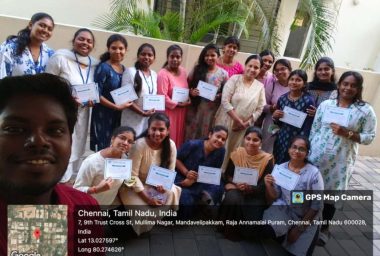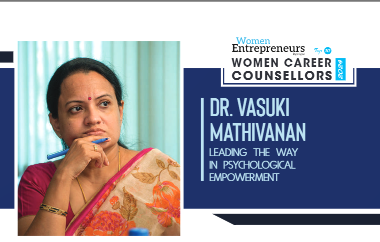-
Authoradmin
-
Comments0 Comments
-
Category
Cross culture and Counseling Therapy- A Challenge
It is time for Indian companies to become multinationals and commence operations abroad. Indian companies are making forays into markets all over the world. It may be one of the best ways of increasing revenue and might even be necessary to effectively regulate the flow of multinationals into India. Many Indian firms have slowly and surely embarked on the global path, which has led to the emergence of the Indian multinational companies. This is popularly known as the era of the “Indian Crossover”. In this multicultural and multilingual milieu the employees of Indian multinational companies are facing issues of adaptation such as psychological adaptation, socio-cultural adaptation and economic adaptation.
These adaptation problems may be arising from the fact that acculturation, conformity to norms, and collectivism are given great importance in India. Acculturation has been defined as “the changes in behaviors and values that individuals make as they accommodate to the host culture” (Graves, 1967). Collectivism refers to the attitude of putting the collective (family, community, society) before oneself, considering the needs of others before considering one’s own needs, and viewing one’s achievement as the family’s achievement.
Conformity to Norms refers to the attitude of conforming to familial and social expectations, fulfilling the role expectations of one’s family, and being concerned about one’s family reputation. In general, Indian culture and religious practices emphasize the ideals of maintaining order, respecting elders, fulfilling family obligations, prioritizing group interests over individual interests, and maintaining harmony in relationships.
The following real case study analyzes the psychosocial adaptation difficulties of an Indian lady who recently migrated to United States, and examines the causes of her mental disturbance. She exhibited psychological distress, including depression, anxiety and self conflict. Migratory stressors due to dissatisfaction with her life in the U.S., acculturation, and lack of social support were found to be the main causes for her condition.
Overview of the issue:
Anu lost her father when she was 5 years old. Since then, her mother brought her up and looked after all her needs till she completed her graduation and found a job. They never received financial help from anyone. Anu’s mother struggled a lot to bring her up and educate her. Anu always thought that once she got a job she had to keep her mother happy and comfortable. This was her dream. When she got the job she tried her best to keep her mother happy.
After graduation, Anu started her career as a secretary in a reputed company. While working there she got married and was blessed with a baby girl. The baby was a premature child who was born in the 7th month. As Anu was working, her mother took care of the child and brought her up. Her husband got along well with his mother-in-law. When Anu’s child turned one, she decided to pursue M B A in an evening college. Her mother was supportive in all her efforts. Once she completed her MBA, she was promoted as the manager. By this time, the company where she was working decided to start its operations in USA, and offered her the post of HR manager with a very good pay package and other perquisites. She was granted a family visa on which her husband and daughter could accompany her.
Anu was excited with the offer and her husband was also very keen on his wife taking up the assignment. Anu’s mother assured her that she need not worry about her as she could take care of herself with the help of a maid and asked Anu to proceed with further arrangements. So Anu accepted the offer and moved to USA.
Being a strict vegetarian, Anu had problems with food right from her first day in USA, even though many Indian food items were available in Indian shops unlike in the past. Anu, a fatherless child, was brought up in a conservative family and she never wore any dresses other than salwars and sarees. She found Western clothes uncomfortable. But due to the cold climate she was left with no choice but to wear such outfits. Anu felt that she missed something. It was hard to change everything from her food to clothes. Added to this, the climate did not suit her daughter. Very often she felt sick. Nobody was there to take care of the child. She was trying to convince herself by telling herself that with time things would become smoother.
When she was in India she had already heard from her friends and read in the newspapers and books about the lifestyle and culture prevalent in USA. But when it came to facing the reality she found it very difficult to cope with the issues cropping up. Added to this, her mother became sick and the maid was not taking proper care of her. One of her distant uncles told her that it would be better if they leave her mother in an old age home so that there would be somebody to take care of her. So her mother was sent to an old age home. All this had a disastrous effect on Anu’s mental health.
From being a competent employee, an understanding wife, devoted mother and a cheerful person, she became moody, short tempered, and a negative person. She was unable to function as before both in her office and at home. Her food intake and sleep patterns became irregular. Having noticed the changes, her husband took her to the G.P (General Practitioner). After a thorough investigation the G.P said that she did not have any physical problems but found it difficult to adapt herself to an entirely new lifestyle. So the GP advised Anu’s husband to take a break and go to India. When the family came down to India, they consulted a psychologist.
Provisional analysis:
During the session, Anu’s facial expressions and tone of voice were very intense. A sense of helplessness and anger found expression through her voice. Most of the time during her narration, the feelings of guilt and anger radiated powerfully through her eyes and voice. The intensity in that voice could have come only from a heart that was weeping due to the fact that she was not able to take care of her mother who sacrificed her whole life for her only daughter. If a person who was brought up in a Western culture had faced the same situation, he/she would probably not have had the same feelings as Anu had. While talking to the counselor, Anu was fuming. “Something within me cries,” she complained. She was bound by feelings of guilt, self- blame, helplessness and anxiety. These mixed feelings were due to many factors like not being able to keep her mother with her, not being able to take care of her husband and child, not being able to concentrate on her work, and not finding a solution to her problems.
In Anu’s case, psychological adaptation required the dual task of letting go of guilt and overcoming sadness due to separation from her mother, and managing the acculturation issues involved in leaving India and living in an alien country. While many immigrants adapt well to life in the United States, some immigrants like Anu have greater adjustment difficulties, including that of psychological distress.
Anu’s case is a typical example of acculturative stress or psychopathology caused by life change events which in turn results in problems of adaptation. Acculturative stress usually manifests in the form of depression and anxiety due to loss of the culture left behind and uncertainty about the new culture. As with many others, Anu’s distress is further aggravated by underemployment, resulting from an inability to work as before, and consequent loss of morale.
Counseling therapy:
Counseling helped her to have a positive outlook on all the aspects of life that were of consequence in her life such as the education she wanted to pursue, the career she was passionate about, the marriage she wished to settle into, the organization she chose to work with, and her migration to US. She was made to realize that she was always an obedient and dutiful daughter to her mother. Now she as a mother had other responsibilities like providing a conducive atmosphere and providing good education to her daughter. Otherwise as a mother and as a wife she would regret having rejected a good opportunity for her family.
During the sessions she was made to understand the six crucial ‘C’s in the process of change. The idea behind this is that, even though change is necessary and inevitable, it is hard and mostly gradual, and it takes time and will power. When one understands the process, one can accept the reality, cooperate and make the right decisions that will help in personal growth.
The process of change in one’s life is made up of these phases:
Concern: When one gets a sense that something is not right, one is worried, anxious, and out of balance. Anu felt that leaving her mother alone in India was not fair. She developed a feeling of guilt and anguish.
Crisis: When the heat is on, the pressure is high, and the pain gets so bad that one cannot ignore it any more, and the person loses his/her balance. Anu was made to become aware that she was in this phase of intense emotional turmoil.
Choice: Now Anu had to decide whether she was going to move ahead or retreat. Would it be fight or flight? Would she face reality, or continue to live in denial? Counseling sessions helped her to look at the problem with a new perspective. With confidence she said that she would like to fight rather than avoid facing reality.
Comprehension – A new insight into her problem. Her mother’s sickness was because of her old age. Even if she was with her, as she was working she could not have taken proper care of her mother. At least now she was able to provide the possible financial help as she was in US. The counselor helped Anu to work on her thoughts and attitudes.
Conduct – Where one acts on what one knows so that there is a change in one’s behavior. Being given the option she decided to go back to US to lead a better life.
Commitment to continue- Counseling helped Anu to understand the reality that changes in life are inevitable and helped her to face issues with confidence.
Conclusion:
When organizations go global or diversify their operations, employees feel alienated in such a dispersed workforce. Services like pre migration guidance and counseling and educating the employees on the pros and cons of living in a foreign country play a vital role in supporting employees to face such challenges.
To sum up, the analysis of this case study strongly supports the need for organizations to understand within-ethnic-group differences to provide the most culturally sensitive psychological services to their employees. Indian MNCs need to be aware of the acculturative stress caused by the diversity of cultural values employees are exposed to while moving from one country to another. Their emotional wellbeing is threatened and especially, separation from the immediate family has been found to be one of the most significant causes of stress for those going from India to other countries.
This present case study strongly supports the fact that– when Indian companies decide to spread their wings to other countries it is essential to provide pre and post migration counseling services to their employees. These counseling services should focus on issues like social and emotional adjustment problems exacerbated by migration. Such counseling services rendered by the companies to their employees should prepare them to face challenges and help their employees to cope with them effectively. In turn they will also motivate the employees to give their best to the organization –employee engagement. Investing in such measures will reap huge dividends for the organizations in terms of psychological well being of employees, improved retention and enhancement of productivity.
References:
Graves, T. (1967). Acculturation, access and alcohol in a tri-ethnic community. American Anthropologist, 69, 306–321.
Leave A Comment Cancel reply
Recent Comments
Archives
- August 2024
- July 2024
- May 2024
- April 2024
- March 2024
- February 2024
- October 2023
- September 2023
- June 2023
- October 2022
- February 2022
- December 2021
- November 2021
- January 2021
- December 2020
- August 2020
- May 2020
- October 2019
- September 2019
- July 2019
- January 2019
- November 2018
- October 2018
- July 2018
- June 2018
- May 2018
- April 2018
- February 2018
- December 2017
- November 2017
- May 2017



